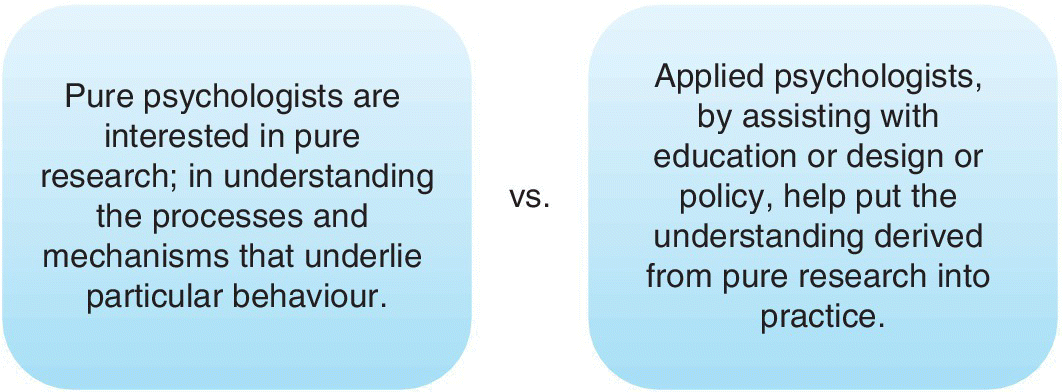7Psychology and Work
7.1 Introduction
Just as there is pure and applied mathematics, so there is pure and applied psychology. Cynics have pointed out that the opposite of pure is “impure,” whereas the opposite of applied is “inapplicable.” Essentially the difference between the two is not particularly clear and some psychologists move happily between the two.
“Pure” psychologists may investigate problems for their own sake rather than to improve the lives of others. They may indulge in “blue sky” research or be interested in issues that, at first glance, may seem to have no applied value. However, as has been found in many of the hard and biological sciences, often pure research reveals important facts that have immediate value. Some psychologists have argued, however, that some of the best pure research arises from pure problems. Thus trying to understand the causes of airplane accidents or patient non‐compliance (now called adherence) may inspire great insights into the processes involved. In this sense pure psychology knowledge is gained from understanding applied problems (see Figure 7.1).

Figure 7.1 Pure vs. applied psychology.
Hartley and Branthwaite (2000) suggested that applied psychologists tend to adopt rather different roles:
- Counselor: Skills include the ability to “help people talk openly, to express their feelings and ideas, to draw out responses and reactions to ...
Get All in the Mind, 3rd Edition now with the O’Reilly learning platform.
O’Reilly members experience books, live events, courses curated by job role, and more from O’Reilly and nearly 200 top publishers.

